“Blood pressure”, is a term we hear rather often in our day-to-day lives. But do we know what it really means? It is not something that should be taken lightly. High blood pressure can have a severe impact on your heart health. So, it’s important that we have a deeper understanding of what exactly it means and how it can affect heart health.
References:
https://www.heart.org/en/health-topics/high-blood-pressure/understanding-blood-pressure-readings https://pubmed.ncbi.nlm.nih.gov/31865786/ https://pubmed.ncbi.nlm.nih.gov/31764589/ https://www.ncbi.nlm.nih.gov/pmc/articles/PMC3075799/ https://www.ncbi.nlm.nih.gov/pmc/articles/PMC3314178/ https://academic.oup.com/ajh/article/20/11/1156/199192 https://www.ahajournals.org/doi/pdf/10.1161/01.HYP.4.5_Pt_2.III143 https://pubmed.ncbi.nlm.nih.gov/9894438/ https://www.ncbi.nlm.nih.gov/pmc/articles/PMC6422950/ https://pubmed.ncbi.nlm.nih.gov/10758809/ https://www.ahajournals.org/doi/10.1161/JAHA.117.002218 https://www.ahajournals.org/doi/10.1161/circresaha.116.305697 https://pubmed.ncbi.nlm.nih.gov/7922186/# https://pubmed.ncbi.nlm.nih.gov/32155866/# https://pubmed.ncbi.nlm.nih.gov/27887750/#
What is Blood Pressure?
The heart pumps out blood to the rest of the body that is carried through the arteries. When this happens, there is also a certain amount of force that the blood exerts on the walls of the arteries, which is known as blood pressure. Blood pressure has two measuring components to it — systolic blood pressure is the pressure your heart is exerting against the artery wall while your heart is beating and diastolic blood pressure is the pressure exerted while your heart is resting. It’s normal for blood pressure to vary throughout the day. Blood pressure ≤ 120/80 mmHg is considered normal, where 120 indicates systolic blood pressure and 80 reads for diastolic. A reading higher than 140/90 mmHg is considered to be high blood pressure, also called “hypertension”. Hypertension over time can lead to cardiovascular problems such as heart attack or stroke, and this is why it’s important to keep blood pressure regulated. There are typically no noticeable symptoms of high blood pressure, therefore, regular checkups would be advisable.Causes of High Blood Pressure
There are different ways that one can become susceptible to hypertension:-
Weight Gain/Obesity
-
An unhealthy Diet
-
Diabetes
-
Unhealthy Lifestyle
Complications of High Blood Pressure
Negative effects of high blood pressure can result in several cardiovascular complications:-
Heart Attack
-
Stroke
-
Chronic Kidney Disease
High Blood Pressure Prevention and Treatment
There are proven ways how to control high blood pressure with easy steps one can take to curb or reduce it:-
Exercise Regularly
-
Eat Healthy
-
Make Lifestyle Changes
References:
https://www.heart.org/en/health-topics/high-blood-pressure/understanding-blood-pressure-readings https://pubmed.ncbi.nlm.nih.gov/31865786/ https://pubmed.ncbi.nlm.nih.gov/31764589/ https://www.ncbi.nlm.nih.gov/pmc/articles/PMC3075799/ https://www.ncbi.nlm.nih.gov/pmc/articles/PMC3314178/ https://academic.oup.com/ajh/article/20/11/1156/199192 https://www.ahajournals.org/doi/pdf/10.1161/01.HYP.4.5_Pt_2.III143 https://pubmed.ncbi.nlm.nih.gov/9894438/ https://www.ncbi.nlm.nih.gov/pmc/articles/PMC6422950/ https://pubmed.ncbi.nlm.nih.gov/10758809/ https://www.ahajournals.org/doi/10.1161/JAHA.117.002218 https://www.ahajournals.org/doi/10.1161/circresaha.116.305697 https://pubmed.ncbi.nlm.nih.gov/7922186/# https://pubmed.ncbi.nlm.nih.gov/32155866/# https://pubmed.ncbi.nlm.nih.gov/27887750/#








